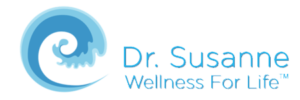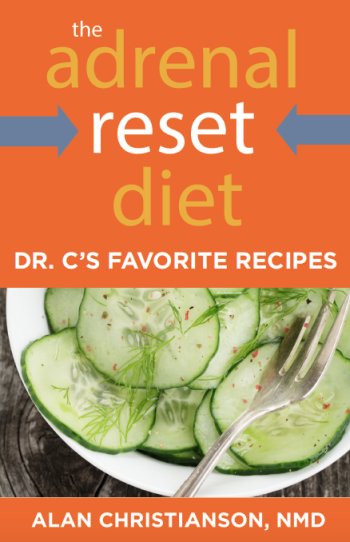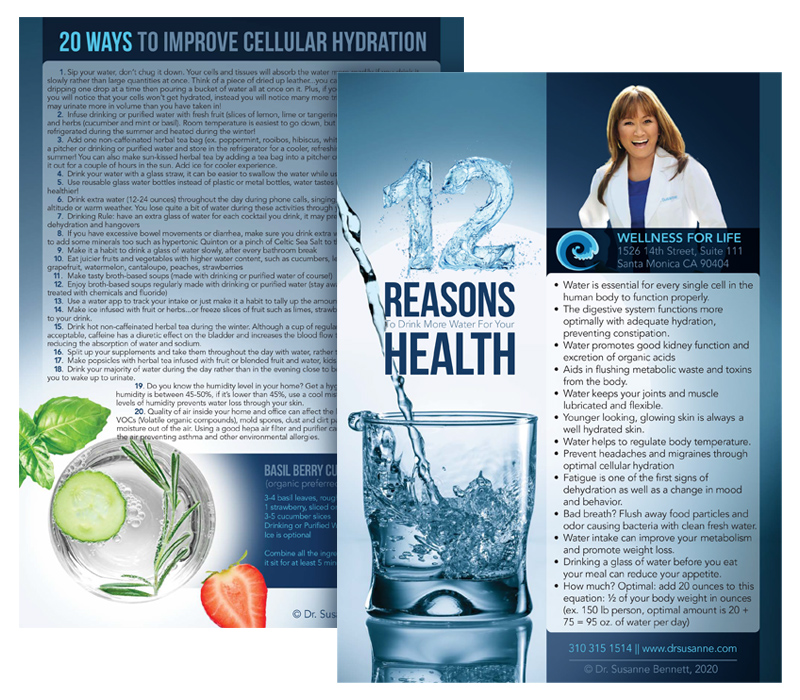Listen below to my Nature’s Secrets Radio Show segment on
“5 Steps to Better Sleep”:
5StepsToBetterSleep.mp3
A third of US adults routinely sleep fewer than 7 hours a night, and for many that isn’t by choice. Overly committed lifestyles, stress and unhealthy habits plague our ability to get a good night’s sleep. What is going on inside our bodies; and what can you do to improve your sleep?
Two bodily processes impact your sleep. First, your body has its own sleep/wake homeostasis, or state of balance; it naturally creates restorative time for itself…as long as you let it.
The other critical process is our circadian biological clock. This internal clock regulates a 24-hour cycle within our bodies consisting of patterns of brain activity, cell regeneration, hormone production, and many other biological activities.
This circadian rhythm is controlled by the hypothalamus in our brain, and our body clock’s timing is set by the light-dark cycles around us throughout our day.
So light exposure is key to sleep.
It is a fascinating process. Any type of light whether it is natural or artificial hitting your optic nerve (the nerve in the back of our eyeballs), transmits a message of “awake” to the SCN, which stands for suprachiasmatic nucleas –a group of cells in the hypothalamus in our brain.
The light trigger produces an elevation in our body temperature, an elevation in the hormone cortisol (and a reduction in sleep hormones), and many other physical changes that get us up and going in the morning.
Alternatively, when our eyes are not being stimulated by light, it tells the SCN in the hypothalamus that it is nighttime, and time for restorative rest.
The SCN instructs the pineal glands to produce melatonin and serotonin (hormones which help us relax and sleep), our body temperature drops and our bodies get ready to sleep.
Why is this important?
Think about it. Before electricity was available, people went to bed when the sun went down, and got up at sunrise. They likely got a good night’s sleep with a lot of restorative rest.
With electronics and all of the distractions we have today, from viewing late night programming to answering emails, we’ve messed up our natural light-dark rhythms.
By maintaining a healthy sleep hygiene you will improve your immune system’s defense mechanisms to fight infections…improve your mental clarity and memory skills, improve your energy level, and even improve your ability to lose weight!
Lose weight while you are sleeping, that is too good to be true! Yes, studies show that sleep can affect many hormones in our body especially ones relating to appetite- ghrelin and leptin.
Ghrelin is produced in the gastrointestinal tract, stimulates our appetite, while leptin is produced in our fat cells, which sends a signal to the brain when you are full.
My mantra for this is: Go away ghrelin, I love leptin!
We want more leptin to curb our appetite, and don’t want more ghrelin since it increases our appetite!
Studies are showing that excretion of these hormones can be influenced by our sleep patterns.
When you don’t get deep uninterrupted sleep, the levels of leptin decreases, which mean you don’t feel satisfied after a big meal. At the same time, ghrelin levels increase in the gut, which makes you crave more food especially carbohydrates and you end up fatter!
Here are a few strategies to improve and maintain a healthy biorhythm:
- Wake up and go to sleep at the same time daily, even on weekends to get at least 8 hours of sleep, if you can get 9 even better! Don’t take naps… that will just confuse your body’s clock even more.
- Turn off all of your lights! Ideally, dim the lights at sun down, or at least 1 hour prior to bedtime. If possible, turn-off your electronics, computers, the TV, and other lights and use a book light for reading or journaling.
- Ensure that your bedroom is very dark or wear an eye mask to sleep. Even a small amount of light, like that from an electric clock, can impact the pineal gland’s production of melatonin. Plus staring at that clock will cause your cortisol to increase, just the opposite of what you want.
- First thing in the morning, let some sunshine hit your eyes! And linger for 15 minutes or so if you can. Do a yoga stretch or meditate to start your day.
- If you don’t have sunshine or natural light due to the winter season and extreme weather… invest in a light box with full-spectrum fluorescent bulbs during the morning hours. I usually recommend using light therapy from Halloween through Easter for most people who have difficulty waking up during the winter.
Poor sleep habits can contribute to sleep issues. Ideally, you should get 8-9 hours of sleep every night.
If you are not able to manage that, try a few of these tips:
- Go to bed earlier, by 10 pm if possible.
- Create a bedtime relaxation ritual: Even 10 minutes of ritual (an hour is better!) before bed can help you relax your body. Try a hot bath with lavender; when you get out and start to cool down your body naturally will start to get sleepy. Lavender is a wonderful relaxation aromatherapy.
- Play some quiet music, practice some deep breathing or mindfulness techniques, do some reading or journaling under low light.
- Environment: Ensure your bed and pillow is right for your type of sleeping (back, side, and face-down). A cooler temp (no greater than 68 degrees) will help you sleep.
- Physical activity: Ensure at least 30 minutes of daily exercise, but not within a few hours of bedtime. Best time is in the morning.
- Eliminate nicotine, caffeine and alcohol. All increase cortisol and will result in stimulating the nervous system and reduce restful sleep. Check prescriptions and over-the-counter drugs for caffeine.
- Don’t drink water after 8:00 (or you may have to get up to urinate).
- Don’t go to sleep hungry or stuffed full. Digestive enzymes or a probiotic can help ease heart-burn and other digestive discomfort that might keep you awake.
- Eat foods containing the amino acid tryptophan if you need a late snack, such as turkey, walnuts, almonds, eggs or pumpkin seeds.
Pumpkin seeds have the highest dose of tryptophan per serving. Our bodies convert tryptophan into 5-HTP, and then to serotonin and melatonin. This relaxes the body and promotes sleep.
In my practice I have found that allergies are often the culprit in poor sleep. Cleaning up your diet by eating healthier, whole foods will help. Additionally, removing common food sensitivities can help.
The culprits are: dairy, gluten, sugars, fungi, alcohol, eggs and peanuts.
Lack of energy, an inability to wake-up, brain fog, fatigue, restless sleep and even insomnia can be symptoms of a food or environmental allergy.
Cleaning up potential allergens in your environment, especially in the kitchen, can also help with sleep. Sadly, Fido and Fluffy may need to be banished from the bed. In my book, The 7-Day Allergy Makeover, I talk about all the things that people can do to ease allergy symptoms.
Interestingly, new research is showing people are actually developing allergies due to a lack of sleep; sleep deprivation may weaken your immune system, making you more prone to developing an allergy, diabetes or other diseases and infections.
There are also some natural remedies in the form of supplementation that can help with sleep. Please don’t take sleeping pills. Research has shown they are not that effective, can reduce the overall quality of your sleep and may have toxic side effects such as increasing the risk of cancer.
Here are a few sleep supplements that I often discuss with my patients:
- Phosphatidylserine: this is a naturally occurring lipid found in our cell membranes which helps reduce cortisol levels in the body, helping the body to rest.
- Melatonin: this is a naturally occurring hormone involved in the body’s sleep-wake cycle, and is a common sleep aide for many people suffering from insomnia.
- GABA (gamma-aminobutyric acid): this is a neurotransmitter which helps the brain and the body to relax.
- Valerian: this is an herb which stimulates the brain to release GABA. It is often found in herbal sleeping formulas.
- Magnesium: this is a good supplement important to controlling blood sugar and many people are deficient in this in their diet; it also aids in sleep.
So, why is a good night’s sleep so important…beyond keeping us from waking up grumpy?
The body needs to rest deeply with our interruption to restore itself and many cleansing, detoxing, rejuvenating and regenerating processes occur while we sleep… mostly during the deepest level of sleep, which occurs between 10pm and 2 am.
Nearly every hormone in our body is released in response to our body’s circadian clock! Therefore if you are totally off rhythm, then you are bound to see that your hormones will be thrown off quickly as well!
Studies have shown that sleep-deprivation can even impact the hormone insulin, which our bodies use to regulate blood sugar. One study found that sleep-deprived men’s insulin echoed the effects of insulin resistance, which is a precursor to diabetes. Cortisol levels and thyroid-stimulating hormones also have shown changes during sleep deprivation.
So sleep is clearly vital to your health, and your health is vital to your sleep! Follow these tips, improve your nighttime sleep habits, and keep your circadian clock humming…and you are sure to get a better night’s sleep tonight!






